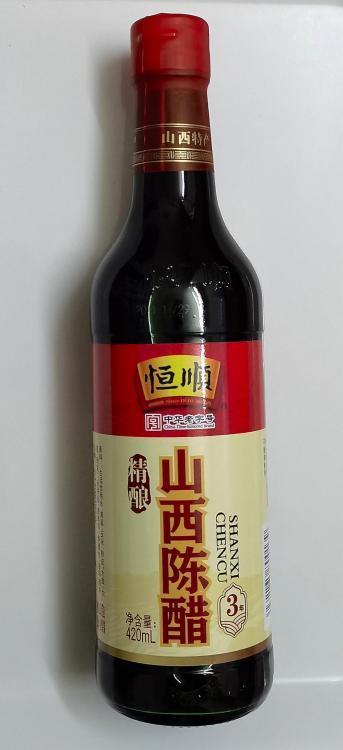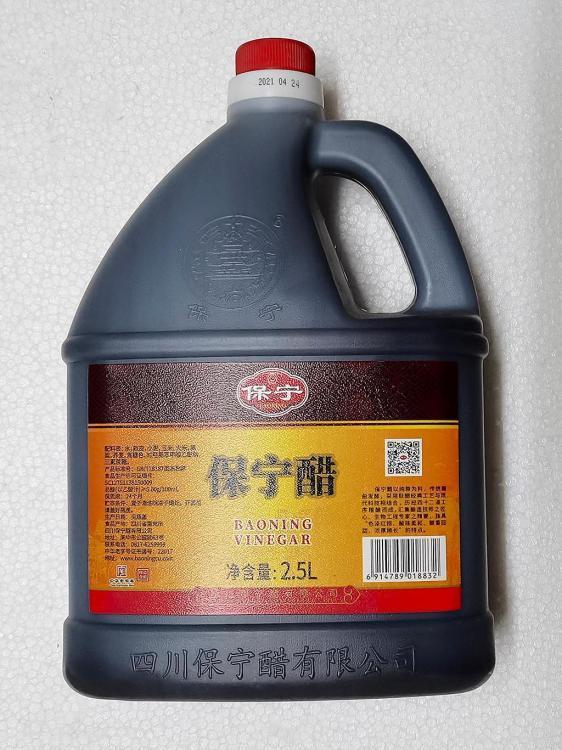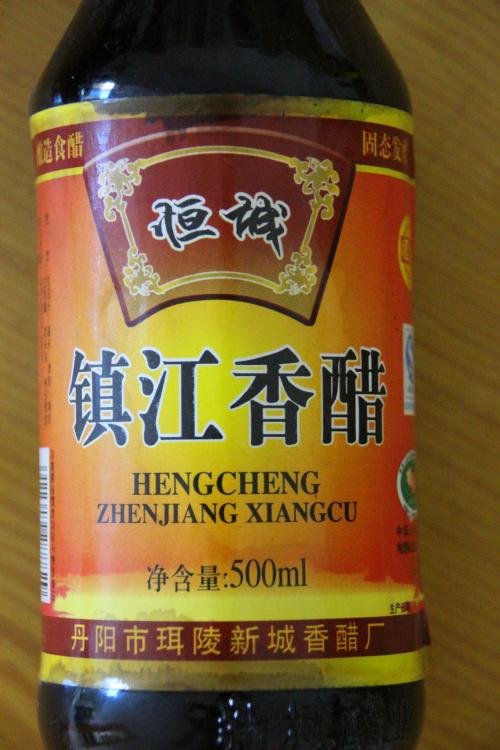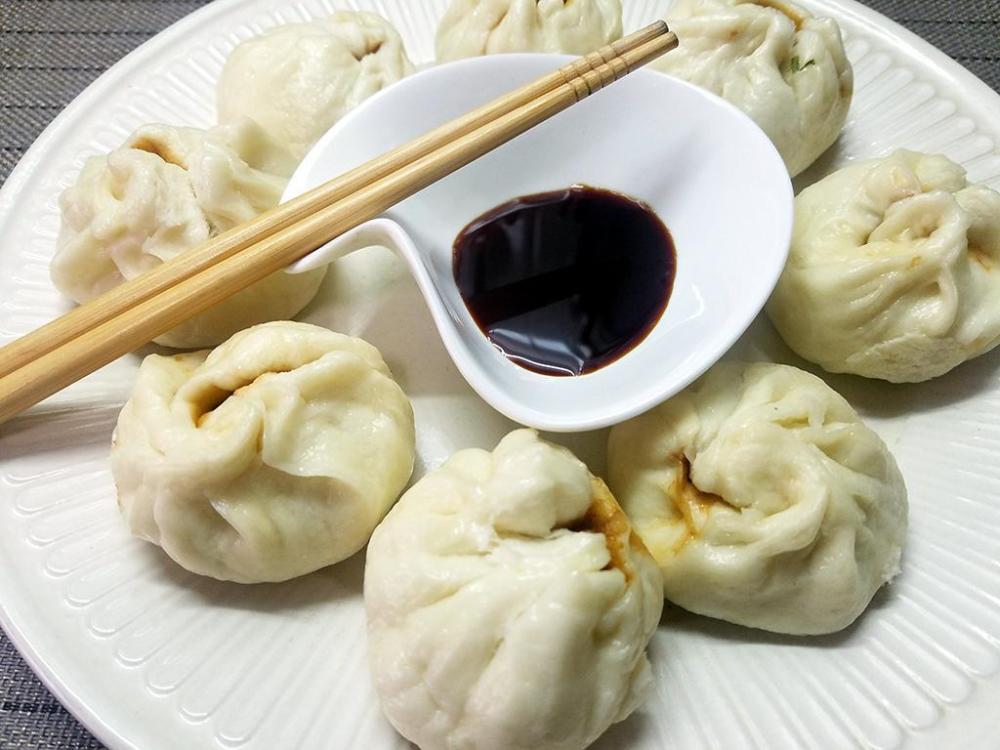China's premium vinegars are all black varieties. These are smoky and have complex flavours. Yet, they are quite distinct from each other.

Most common within China is Shanxi Mature Aged Vinegar, S: 山西陈醋; T: 山西陳醋 (shān xī chén cù). This vinegar from Shanxi province in east-central China is unique among China's vinegars in that it does not include rice. Instead it is made from a mixture of sorghum, wheat, barley and peas.
The area has been associated with vinegar for at least 2,500 years, but the type still available went into production in 1368.
Shanxi vinegar is aged for a minimum of one year, although most found in supermarkets is aged three years. A five year premium version is made in limited quantities.
This vinegar seems to be difficult to source in the west, although at time of writing Amazon is stocking some.
If you can't find it, don't despair. The ultimate in Chinese black vinegars is thankfully more widely available.
Zhenjiang Vinegar, S: 镇江香醋; T: 鎮江香醋 (zhèn jiāng xiāng cù) is widely considered to be the peak of the Chinese vinegar making arts. It is often sold in America under the prehistoric transliteration Chinkiang vinegar, a term unknown in China.
This is a geographically protected product of Zhenjiang city in Jiangsu province near Shanghai, where they've been making it for over 1,400 years.
Zhenjiang is made from predominantly rice but with some wheat and barley also included.

Least well known, even within China, is Sichuan Baoning Vinegar, S: 四川保宁醋; T: 四川保寧醋 (sì chuān bǎo níng cù). Made in Baoning, Sichuan since 1618, this is mainly wheat bran based but also contains a wide mixture of 'medicinal' herbs giving it a unique flavour. This is my go to general vinegar of choice.
You may come across vinegars simply labelled as Chinese black vinegar; I suggest you stay clear unless you are very sure what they are and where they're from. The above listed all include their provenance proudly on their labels.
These vinegars are used in dips for dumplings, especially xiao long bao. Black vinegar is used to dress noodle dishes. It goes particularly well with braised pork dishes. I always add it to steamed fish. I once ate a wonderful braised chicken dish with Zhenjiang vinegar, the recipe for which I'm still trying to wrest from the cook. The list is endless. There are even those who just drink the stuff!
Finally, many sources suggest that balsamic vinegar makes a good substitute. I strongly disagree. The only similarity is that they are both black. The flavours and textures are wildly different.




